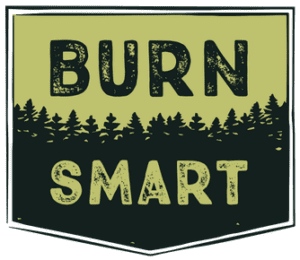Grilling is a favourite Canadian pastime – and for good reason. It’s fun, the food tastes amazing, and it keeps the heat out of the kitchen. But outdoor cooking requires a bit of caution. Whether you’re using gas, charcoal, or a smoker, these barbecue safety tips will help keep your gatherings safe and worry-free.
Grill Safety Starts with the Manual
If you haven’t already done so, take time to read the manufacturer’s instructions. If you’re unsure about setup or operation, contact the help line. Knowing your appliance is the first step toward using it safely.
Top Barbecue Safety Tips Everyone Should Know
- Use certified equipment: Look for grills tested by an independent lab (Learn more here.)
- Grill outdoors only: Never cook in enclosed spaces—carbon monoxide is deadly.
- Stay stable: Place your grill on level ground and ensure all parts are secure.
- Avoid flare-ups: Use long-handled utensils and flame-retardant mitts.
- Be fire-ready: Keep baking soda, sand, or a fire extinguisher nearby.
- Supervise at all times: Never leave a hot grill unattended and keep kids at least 3 feet away.
- Cool down safely: Don’t move or cover the grill until it’s fully cool.
Gas Grill Safety Tips
- Open the lid before lighting to prevent gas buildup.
- Use the correct ignition method: Light matches first, or follow the built-in igniter instructions.
- Check the flame: A healthy flame is blue with yellow tips. Mostly yellow? Call a gas fitter.
- Watch for grease: Prevent drips near hoses or the tank.
- Store propane cylinders upright and outdoors—never inside.
- Inspect your tank regularly: Look for dents, rust, or signs of damage
Charcoal Grill Safety Tips
- Keep 8 feet from any structure.
- Never add lighter fluid to hot coals.
- Avoid grilling on wood surfaces or in high winds.
- Let ashes cool completely before disposal (visit hpbac.org/product-safety for more info)
Grill Maintenance and Leak Checks
- Clean burner tubes: Insects or debris can block gas flow.
- Check O-rings and hose connections for wear and tear.
- Test for gas leaks: Use soapy water on connections—bubbles mean trouble.
Propane Cylinder Safety
- Don’t store cylinders indoors or near heat sources.
- Check the re-certification date—propane tanks must be inspected every 10 years.
- Avoid keeping spare tanks near your grill.
Grill Brush Safety: Hidden Bristle Hazards
Wire grill brushes can shed bristles that stick to the grill—and your food. If swallowed, they can cause serious injury.
Grill Brush Safety Tips:
- Replace worn brushes regularly.
- Test bristles with tweezers—if they pull out easily, it’s time for a new brush.
- Store brushes indoors and clean them after use.
- Inspect before and after every use.
Grilling should be fun—and with a few precautions, it can be safe too. Follow these barbecue safety tips to protect your home, your loved ones, and your food. When in doubt, visit a specialty grill dealer near you for more information.


